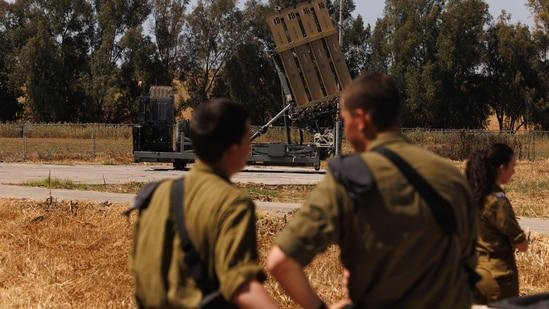The simmering tensions between Israel and Iran have reached a new peak with reports emerging of missile attacks launched by Israel on Iran’s central city of Isfahan. This latest escalation in the long-standing conflict between the two regional adversaries has sent shockwaves across the Middle East and raised concerns about the potential for further destabilization in the region.
According to initial reports, Israel conducted a series of missile strikes targeting strategic locations in Isfahan, including military installations and infrastructure facilities. The attacks, purportedly aimed at weakening Iran’s military capabilities and deterring its nuclear ambitions, represent a significant escalation in Israel’s ongoing efforts to counter perceived threats emanating from Tehran.
The decision to target Isfahan, a key city in Iran known for its industrial and military significance, underscores Israel’s determination to confront Iran’s expanding influence in the region. Isfahan, home to sensitive nuclear facilities and military installations, has long been a focal point of international scrutiny amid concerns about Iran’s nuclear program and its potential military implications.
In response to the missile attacks, Tehran swiftly moved to ground flights at Isfahan International Airport, citing security concerns and the need to assess the situation. The decision to suspend air travel underscores the gravity of the situation and the heightened state of alertness in Iran as it grapples with the aftermath of the Israeli strikes.
The escalation of hostilities between Israel and Iran comes against the backdrop of escalating tensions and provocations in the region, including recent incidents involving attacks on shipping vessels and drone strikes targeting oil facilities. The mounting pressure and provocations have fueled fears of a broader conflict with far-reaching consequences for regional stability and global security.
The timing of the missile attacks on Isfahan is particularly significant, coinciding with heightened diplomatic efforts to revive the Iran nuclear deal, formally known as the Joint Comprehensive Plan of Action (JCPOA). The nuclear agreement, which was signed in 2015 to curb Iran’s nuclear program in exchange for sanctions relief, has been a source of contention between Iran and the international community, particularly since the United States withdrew from the deal in 2018.
The Israeli missile strikes on Isfahan further complicate efforts to de-escalate tensions and revive diplomatic dialogue aimed at resolving the longstanding disputes between Iran and the international community. The attacks risk undermining diplomatic efforts and pushing the region closer to the brink of open conflict, with potentially catastrophic consequences for all parties involved.
Moreover, the missile attacks on Isfahan highlight the growing risks of military confrontation in the absence of meaningful dialogue and diplomatic engagement. As regional powers jockey for influence and assert their respective interests, the risk of miscalculation and unintended escalation looms large, heightening the prospects of a wider conflict with devastating consequences.
In light of the escalating tensions, the international community has called for restraint and de-escalation, emphasizing the need for dialogue and diplomacy to address the root causes of the conflict. Efforts to revive the Iran nuclear deal and facilitate constructive engagement between all parties remain critical in averting further escalation and promoting regional stability.
The missile attacks on Isfahan also underscore the urgent need for a comprehensive and inclusive security framework to address the underlying grievances and security concerns of all stakeholders in the region. A sustainable peace settlement that addresses the legitimate security concerns of all parties is essential for promoting stability and prosperity in the Middle East.
In addition, Israel’s missile attacks on Iran’s Isfahan have escalated tensions in an already volatile region, raising concerns about the potential for further escalation and conflict. The targeting of strategic sites in Isfahan and the subsequent grounding of flights underscore the seriousness of the situation and the need for restraint and de-escalation. As the international community calls for dialogue and diplomacy to address the root causes of the conflict, the risk of unintended escalation remains a cause for grave concern. It is imperative that all parties exercise restraint and work towards peaceful resolution of their differences to avoid further destabilization and conflict in the region.

